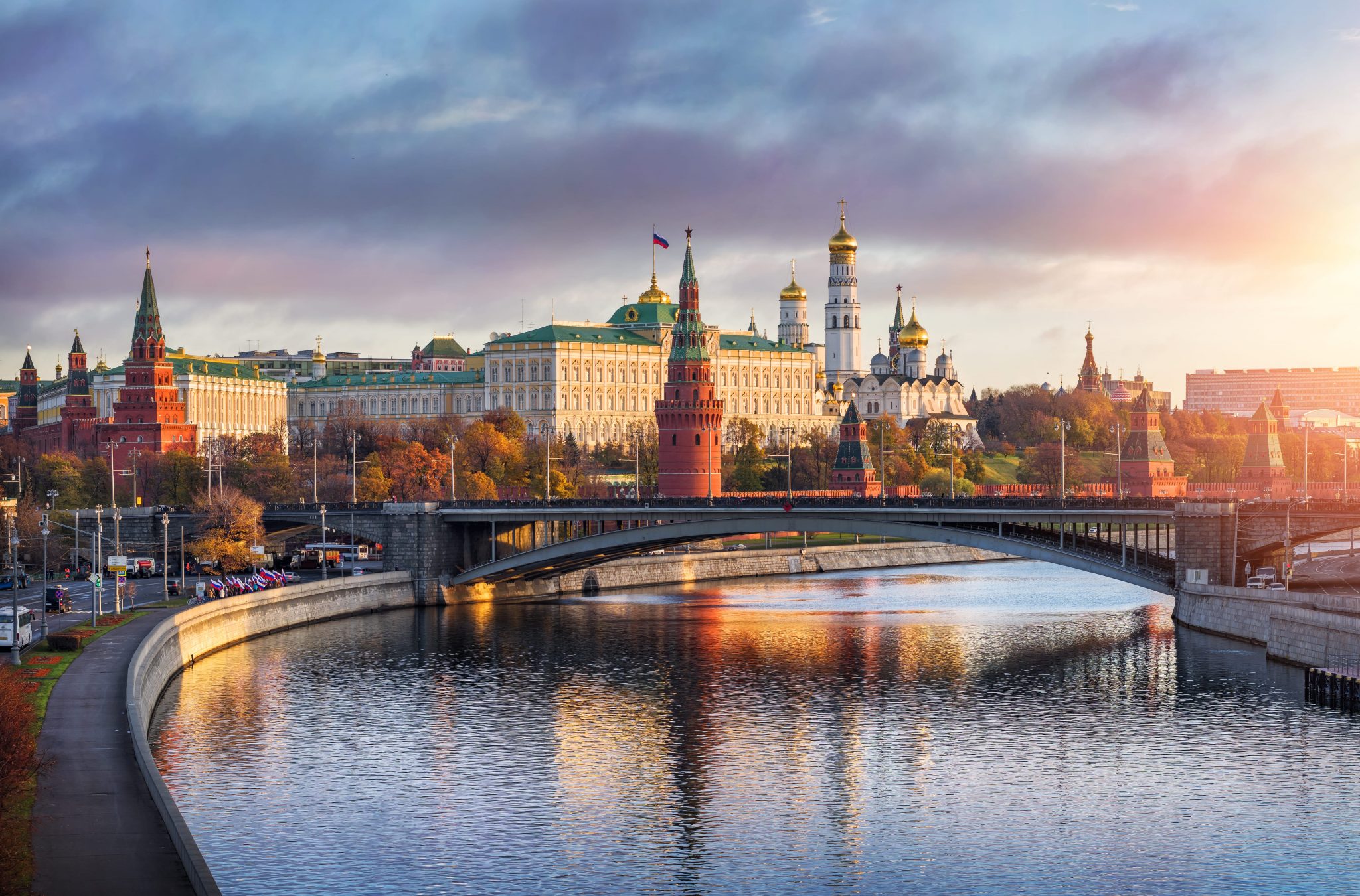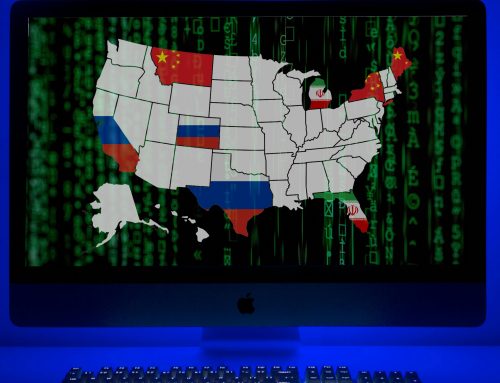Understanding the rise of illiberal populism has been a focus of recent debate on both sides of the Atlantic. This “illiberal international” has many faces, often seemingly at odds: Donald Trump and Jill Stein in the United States, Marine Le Pen and Jean-Luc Melenchon in France, la Lega and the Five Star Movement in Italy. A combination of internal and external factors drive these movements, including domestic forces such as income inequality and a sense of government irresponsiveness, and transnational trends like migration and technological change. At the same time, Russia and its leadership have sought to exploit and strengthen these movements as a means to weaken the West and gain relative power – by deepening societal polarization, amplifying divisive issues on which these movements feed, providing financial support, and connecting movements across borders. This paper does not analyze the internal drivers of these movements or transnational trends, but stipulates that they are important. It also does not examine the relative impact of internal versus external factors. Rather, this paper focuses on the role of the Russian government and its proxies in nurturing and shaping these movements as a means of destabilizing the West and advancing Russian foreign policy goals.
This paper discusses three characteristics of the Russian government’s support for illiberal populist forces, and draws on examples of Russia’s promotion of such movements to illustrate patterns and pathways of influence. First, the Russian government uses a range of largely asymmetric tools to support a diverse set of actors across the transatlantic space, using similar tools in different combinations in multiple countries. Second, Russia uses cross-border networks as vectors of influence across the transatlantic space, often facilitated by Russian oligarchs or other figures close to the regime,1 who serve as transnational connectors of populist movements. Finally, while interactions between the Russian government, its proxies, and illiberal populists often use shared social, cultural, or religious values, for Russia these pathways are utilitarian means not ideological ends, and are aimed at forces on both sides of the ideological spectrum that further Russia’s agenda of upending the transatlantic status quo. These movements’ alignment with pro-Russian policies — anti-establishment, anti-European, anti-American agendas – rather than a particular political ideology, drive Russia’s support. This analysis has several implications for policy makers, including the need to break down stovepipes, work across sectors to develop a whole of society approach, and form transnational strategies to combat Russian government attempts to undermine democratic stability.
A Toolkit for External Support
Information operations connected to the Russian government have been the focus of much of the media’s reporting on Russian interference in democracies, especially their role in the 2016 U.S. presidential election. But disinformation is only part of the Kremlin’s toolkit; its other tools include political and social subversion, malign finance, cyber-attacks, and strategic economic coercion. These tactics are used repeatedly in different countries to support illiberal populist groups across the political spectrum.
Covert support for and exploitation of non-governmental (NGO) interest groups, for example, has proven a successful means of building networks with influential political figures and fanning issues on which populist movements feed. For instance, Russian oligarch and former head of Russian Railways Vladimir Yakunin, whose network is examined in more detail below, has been connected with a network of NGOs in the Baltics promoting ethnic Russian interests: these connections (and the grants of funding associated with them) were obscured until civil society groups exposed them.2 In the United States, associates of the Russian government have sought to connect with the far-right via interest groups, leading in one instance to charges by the U.S. Department of Justice against Mariia Butina with conspiracy to act as an agent of Russia.3 Butina – ostensibly a student at American University – ingratiated herself with leading members of the National Rifle Association4 at the behest of and with the help of Alexander Torshin, former Deputy Governor of the Central Bank of Russia.5
Some outreach is more overt. In France, Moscow has courted the populist right wing through organizations such as the Association Dialogue Franco-Russe, which is chaired and financed by Yakunin,6 and the Institute for Democracy and Cooperation, led by former Duma deputy Natalia Narochnitskaya. Moscow has also reached out to the Catholic far-right via the Russian Orthodox Church and religious foundations like Yakunin’s Foundation of Saint Andrew the First-Called (FSA), partnering with them for initiatives like the massive anti-gay marriage movement Manif pour Tous.7 In the United States, Yakunin, oligarch Konstantin Malofeev and Duma deputy Elena Mizulina are heavily involved in the World Congress of Families,8 an anti-LGBT group that has played connected Russian officials with powerful stakeholders in the American social conservative far-right, especially those invested in spreading what they see as traditional religious values on a worldwide scale. These American social conservatives have in turn lent support to Russia when it has faced Western criticism for its human rights abuses.9 This outreach has also extended to the left – in the United States, this included Jill Stein, the Green Party’s presidential candidate in 2016, who attended a 2015 RT banquet in Moscow where she sat at the table of honor with Vladimir Putin.10
The Russian government has also deployed energy investments to corrupt and covertly influence local stakeholders. In Italy, Russia’s majority state-owned oil and gas conglomerate Gazprom’s partnership with the Italian energy firm ENI on the Nordstream 2 pipeline has led ENI to fund a number of pro-Russian conferences at Italian think tanks, without disclosing that it had done so at Gazprom’s request.11 In Hungary, Russia has heavily invested in the popular and politically important Paks Nuclear Power Plant12 after Russian state nuclear energy company Rosatom was awarded the construction contract and Russia promised a ten billion euro line of credit to finance the project.13 The Kremlin has leveraged this dependence to gain Budapest’s support for Russian interests, such as Russia’s move to further Hungary’s dependence on Russian energy via construction of new pipelines as well as acting as a spoiler in intra-European politics over issues such as migrants and Crimea.14 The Russian government may be using a similar method in Italy ahead of European Parliament elections in May.15 Matteo Salvini’s La Lega party was as of October 2018 in the process of brokering a deal with Russian state oil interests to receive part of the proceeds from the sale of three million metric tons of diesel.16 If confirmed, this would be a particularly brazen instance of direct Russian funding of an illiberal populist political party in the West.
The Russian government also employs cyber and information warfare to support illiberal populist forces. Russian military strategists see cyberwarfare not as a distinct, separate form of military operation but rather one that is integrated into other means of asymmetric warfare, such as disinformation.17 Two of its most well-known hacking networks are APT28 (“Fancy Bear”), connected to the Russian military intelligence service GRU, and APT29 (“Cozy Bear”), associated with the domestic intelligence service FSB.18 These groups have engaged in cyberattacks against a range of Western targets, including the German Bundestag, U.S. political parties, and civil society organizations.19 The material stolen in these attacks in some cases has been weaponized in information operations aimed at undermining establishment parties and institutions, such as in the 2016 U.S. presidential election when Wikileaks, which is generally acknowledged by U.S. intelligence officials as a tool of Russian intelligence,20 publicly released material stolen by APT28.21
And while most attention on the now-infamous Internet Research Agency (IRA) troll farm22 has focused on its activity in the United States, it has targeted numerous groups across the transatlantic space to foment division and drive support for illiberal populist forces. Controlled and financed largely Putin’s associate Yevgeniy Prigozhin, the IRA first made waves in 2013-2014 as forums, Twitter, and comment sections were flooded with pro-Russian messages in countries such as Poland,23 Germany,24 and Switzerland.25 In the run up to the 2016 election, the IRA turned its attention to the United States to unleash a massive troll assault to enflame partisan polarization on social media, support Donald Trump and Jill Stein, and generally to sow chaos.26 Moreover, the IRA is not the only Russian information operations actor. The GRU has also engaged directly in information operations, including by creating false personas on social media to spread divisive content.27 Russian online information operations have also targeted the Netherlands, supporting euroskeptic figures, including ahead of a referendum on an EU-Ukraine trade agreement;28 the Brexit campaign in the UK;29 and has spread anti-NATO messages in Sweden.30 Russian government support for media outlets across Europe – including in Hungary,31 the Baltic,32 and the Anglosphere,33 as well as the opening of RT outlets in France,34 Italy,35 and Germany,36 has also facilitated the spread of anti-establishment and pro-Kremlin narratives, including the hyping of issues like migration that fuel support for populists.
Case Study: France
Just as Russia and its proxies deploy each of these tools in multiple countries, they typically use them in combination. For instance, the Russian government’s support for the far-right in France has employed malign finance, cyberattacks, disinformation, and political and social subversion in France before and throughout its 2017 presidential election season. The Russian government has sought to bolster the political fortunes of Marine Le Pen and her far-right party, National Rally (formerly National Front), whose politics (Euroskepticism, anti-Americanism, and hostility to NATO) align with the Kremlin’s interests and goals. Alexander Babakov, a member of Russia’s Federation Council and Special Presidential Representative to Russians Abroad, arranged a combined eleven million dollars in loans to National Rally37 with the help of Marine Le Pen and National Rally’s treasurer.38 This money came with the understanding that National Rally would support certain policy stances favorable to Russian interests,39 such as the end of EU sanctions and recognition of Russia’s occupation of Crimea as legitimate.40 Le Pen and her associates also traveled to Russia repeatedly, meeting with Kremlin officials, including Vladimir Putin.
But Russia’s support for Le Pen did not stop at funding. The Russian government used cyberattacks, hacking and leaking the private documents of Le Pen’s opponent Emmanuel Macron and his party, La France en Marche.41 Wikileaks attempted to promote these leaks; it was relatively unsuccessful in doing so,42 although American far-right figures spread the leaked and falsified documents to try to harm the candidate, Macron, who they saw as an Obama-like liberal “globalist.”43 Le Pen (and other pro-Kremlin candidates, such as Francois Fillon and Jean-Luc Melenchon, representing the center-right and the far-left) also benefited from state-owned media channels RT and Sputnik, both of which have French language services.44 A number of Twitter accounts that the company has now confirmed as created by the IRA also tweeted in advance of the French elections with pro-Le Pen and anti-Macron content.45 In the fall of 2018, Facebook also removed more than 100 accounts tied to the IRA, many of which were operating in French.46 Taken together, Russia’s activity in France illustrates how the Russian government uses a whole toolkit to undermine democracies and promote illiberal populist forces.
Transnational Networks of Influence
To deploy these tools, representatives of the Kremlin’s interests preside over networks working with cut-outs in multiple countries. One such representative is Yakunin, a devout Russian Orthodox believer who maintains a dacha next door to Putin’s.47 As noted earlier, Yakunin runs a variety of religious and social conservative foundations that operate in Europe and the United States, namely the FSA, the Istoki Endowment Foundation, and the Association Dialogue Franco-Russe. As the nexus and funding source of these foundations, Yakunin is able to insinuate Russian state interests into the political conversation in key Western European countries and in the United States. Yakunin’s foundations and their initiatives, like his Dialogue of Civilizations conferences, associate mostly with socially conservative groups in the countries in which they work. They have helped to position Russia as a defender of Christian, European values against what Russian media48 and government officials call an onslaught of liberal decadence and non-white, non-Christian migrants. Putin himself has promoted this image, declaring in 2013 that “Euro-Atlantic countries are actually rejecting their roots, including the Christian values that constitute the basis of Western civilization.”49 Russian propaganda pairs this defense of Christianity with attempts to inflame fears in Europe of creeping Islamization at the hands of migrants from the Middle East, facilitated by Western democratic government, serving to both sow chaos in European politics and undermine refugee policies.50
In France, Yakunin’s FSA has done well in winning over the descendants of White Russian émigrés, coaxing France’s Orthodox Churches to return to the Kremlin-affiliated Moscow Patriarchate.51 The Foundation, whose staff is entirely French except for the Yakunins and one Russian staff member, has also proved useful in connecting with local French religious activists.52 The group was heavily involved in the anti-gay Manif pour Tous movement, and forged connections with far-right Catholic activists like Wallerand de Saint-Just, the treasurer of National Rally who is an associate of the notoriously anti-Semitic Society of Saint Pius X.53 In Estonia, Yakunin’s Alliance for Peace and Freedom also gave 1.5 million euros to the campaign of Edgar Savisaar, the mayor of Tallinn and leader of the opposition Center Party, which Savisaar did not disclose, later attempting to label the donations as funds for the construction of a church.54 Now attempting to expand operations into Germany, Yakunin received (controversially) a work visa for Germany in August 2018,55 but the FSA has reportedly had trouble hiring German staff.56 Recent reporting indicates that Yakunin is looking to expand the operations of his Dialogue of Civilizations think tank to Brussels and New York.57 Through these networks operating in different countries, Yakunin is also able to connect illiberal populist leaders in different countries, forging connections among these movements.58
Over time, these networks’ local proxies often master these tools and adopt them for themselves. One such example is Italy’s Five Star Movement (M5S), a populist Euroskeptic and anti-NATO insurgent party led by comedian Beppe Grillo and Davide Casaleggio.59 M5S, which has aligned itself with Russian interests in Italy together with La Lega, has its origins in internet-based organizing and now operates a network of websites known in Italian as the Associazione Rousseau that showcase disinformation, conspiracy theories, and pro-Kremlin material.60 One of M5S’ major blogs, Tzetze, is the centerpiece of this platform, and often showcases anti-American disinformation and material produced by Russian state-owned news outlet RT Italia.61
Utilitarian, not Ideological, Motivations
While cultural and religious networks are often a means through which Russia builds influence networks, ideology is not itself an end goal of its support for illiberal populist movements. Rather, Russia sees these groups on both the political left and political right as a means to further Russian foreign policy goals and interests by destabilizing European and North American democracies, and because of their success in coopting them to support Russia’s interests, particularly in undermining the European project and transatlantic ties. In the United States, as noted above, Russia has supported movements and political figures on both the far-left and far-right of the political spectrum. In France, in addition to the Kremlin’s ties with Marine Le Pen and National Rally, it has also cultivated strong ties to Jean-Luc Melenchon and his party La France Insoumise (LFI), which is on the far-left side of France’s political spectrum. LFI frequently parrots Kremlin language on matters involving Russia, taking the Kremlin line on the assassination of Russian opposition leader Boris Nemtsov, the invasion of Crimea, and the incursion into eastern Ukraine, and smearing Putin’s opponents in Russia and Ukraine as thugs and anti-Semites.62 LFI, an eco-socialist party, shares little in common with National Rally;63 what they do share is Euroskepticism, anti-Americanism, and hostility to NATO.
Implications for Policy
Successfully addressing Russia’s promotion of illiberal populist forces across the transatlantic community requires understanding the tools, tactics, and networks it uses to do so. Just as Russia approaches support for illiberal populist forces holistically, deploying its tools in support of each other and employing cross-border networks to more efficiently implement its objectives, democracies must understand and address Russia’s promotion of illiberal forces comprehensively. Countering each tool individually is important, but democracies will not be able to counter Russian efforts to undermine democracies effectively without addressing its overall strategy. This requires developing whole-of-government approaches both to analyzing the problem and developing policy responses.64
Critically, the best defense starts at home with addressing the underlying domestic conditions that provide fertile ground for the rise of illiberal populist forces and their exploitation by outside forces. Russia’s exploitation of these forces does not make these movements illegitimate, nor does it indicate that Russia created them: in nearly all cases, Russia is using home-grown forces to its advantage, and it is therefore important not to dismiss these movements simply because of external support. Governments also need to strengthen defenses – against cyberattacks, the manipulation of the information space, and the corrupt use of our financial system – reduce our vulnerabilities, and come together across party lines to prevent Russia from exploiting our divisions against us. And democracies need to come together to learn from one another and forge transnational responses to this transnational challenge, particularly given the similarity of tactics across borders and the use of transnational networks.
Strengthening democracy from within and defending it from without requires not just government, but the private sector and civil society, to play a role. Tech companies, in particular, need to continue to develop means to better detect and counter the networks that manipulate their platforms to undermine democratic discourse, and strengthen cooperation with the government and researchers to allow for sharing information necessary to identify online manipulation. And at a time when transatlantic democracies are characterized by intense internal division, civil society needs to play a role in promoting media and digital literacy, supporting local and independent media, exposing outside interference in democracies, and providing an alternative pro-democratic space for those who feel disenfranchised. Russia’s success in supporting illiberal populist movements is largely a function of the failed democratic response. To reverse this trend, it is time for democracies to remember and harness their own inherent strengths.
This paper was presented to “Global Populisms and their International Diffusion,” a conference at Stanford University’s Freeman Spogli Institute for International Studies, on March 1st, 2019.
- Galeotti, Mark. “Controlling Chaos: How Russia Manages Its Political War in Europe.” European Council on Foreign Relations, 01 Sept. 2017. Web. 19 Feb. 2019. p. 4.
- “Kremlin’s Millions: How Russia Funds NGOs in Baltics.” DELFI. Lithuania Tribune, 27 Jan. 2016. Web. 22 Feb. 2019.
- “Russian National Charged in Conspiracy to Act as an Agent of the Russian Federation Within the United States.” The United States Department of Justice, 17 July 2018. Web. 22 Feb. 2019.
- Rosenberg, Matthew. “Maria Butina Pleads Guilty to Role in a Russian Effort to Influence Conservatives.” The New York Times, 13 Dec. 2018. Web. 22 Feb. 2019.
- Rudnitsky, Jake, and Evgenia Pismennaya. “NRA-Linked Russia Central Banker Retires as Aide Nears U.S. Deal.” Bloomberg, 30 Nov. 2018. Web. 22 Feb. 2019.
- “Vladimir Iakounine.” Association Dialogue Franco-Russe. Web. 08 Feb. 2019.
- Laruelle, Marlene. “Russian Soft Power in France: Assessing Moscow’s Cultural and Business Paradiplomacy.” Carnegie Council for Ethics in International Affairs, 8 Jan. 2018. Web. 08 Feb. 2019. p. 10.
- Levintova, Hannah, Mads Nissen, Pema Levy, and Ari Berman. “The World Congress of Families’ Russian Network.” Mother Jones. 24 June 2017. Web. 08 Feb. 2019.
- “American Activist Stands for Punishing Pussy Riot and Supports Putin as He Protects Morality.” Interfax-Religion. Interfax, 17 Aug. 2012. Web. 08 Feb. 2019.
- Windrem, Robert. “Russians Launched Pro-Jill Stein Social Media Blitz to Help Trump, Reports Say.” NBC. NBCUniversal News Group, 22 Dec. 2018. Web. 22 Feb. 2019.
- United States. Cong. Senate. Committee on Foreign Relations. Putin’s Asymmetric Assault on Democracy in Russia and Europe: Implications for U.S. National Security. 115th Cong., 2nd sess. S. Rept. 10 Jan. 2018. Web. 10 Feb. 2019. p. 138.
- “Paksi atomerőmű bővítéséről.” Publicus. 30 Sept. 2018. Web. 10 Feb. 2019.
- Krekó, Péter, and Lóránt Győri. “Hungary: A State Captured by Russia.” Heinrich Böll Foundation. Heinrich-Böll-Stiftung, 11 Oct. 2017. Web. 10 Feb. 2019.
- Ibid., 2017
- Tizian, Giovanni, and Stefano Vergine. “La trattativa segreta per finanziare con soldi russi la Lega di Matteo Salvini.” L’Espresso. GEDI Gruppo Editoriale, 20 Feb. 2019. Web. 22 Feb. 2019.
- Bisozzi, Francesco. “Gianluca Savoini, lo sherpa della Lega alla corte di Putin.” Vanity Fair Italia, 14 Mar. 2018. Web. 22 Feb. 2019.; Nadeau, Barbie Latza. “An Italian Expose Documents Moscow Money Allegedly Funding Italy’s Far-Right Salvini.” The Daily Beast, 22 Feb. 2019. Web. 22 Feb. 2019.
- Connell, Michael, and Sarah Vogler. “Russia’s Approach to Cyber Warfare.” United States Defense Technical Information Center, Mar. 2017. Web. 19 Feb. 2019. p. i.
- Galante, Laura, and Shaun Ee. “Defining Russian Election Interference: An Analysis of Select 2014 to 2018 Cyber Enabled Incidents.” Atlantic Council, 11 Sept. 2018. Web. 19 Feb. 2019. p.6.
- Burt, Tom. “Microsoft Expands AccountGuard to 12 More Countries in Europe.” Microsoft EU Policy Blog. Microsoft, 20 Feb. 2019. Web. 21 Feb. 2019.
- Khatchadourian, Raffi. “What the Latest Mueller Indictment Reveals About WikiLeaks’ Ties to Russia-and What It Doesn’t.” The New Yorker, 24 July 2018. Web. 19 Feb. 2019.
- Galante and Ee, p. 6.
- Garmazhapova, Aleksandra. “Gde zhivut trolli: Kak rabotayut internet-provokatory v Sankt-Peterburge i kto im zapravlyayet.” Novaya Gazeta, 09 Sept. 2013. Web. 21 Feb. 2019.
- “Raport o stanie bezpieczeństwa cyberprzestrzeni RP w 2014 roku.” Rządowy zespół reagowania na incydenty komputerowe CERT, 2014. Web. 22 Feb. 2019.
- Hans, Julian. “Putins Trolle.” Süddeutsche Zeitung, 13 June 2014. Web. 22 Feb. 2019.
- Bracher, Katharina. “Twittern für den Kreml.” Neue Zürcher Zeitung, 28 June 2014. Web. 22 Feb. 2019.
- Graham, David A. “What Mueller’s Indictment Reveals.” The Atlantic. Atlantic Media Company, 20 Feb. 2018. Web. 21 Feb. 2019.; Windrem, 2018.
- “U.S. Charges Russian GRU Officers with International Hacking and Related Influence and Disinformation Operations.” The United States Department of Justice, 04 Oct. 2018. Web. 22 Feb. 2019.
- Higgins, Andrew. “Fake News, Fake Ukrainians: How a Group of Russians Tilted a Dutch Vote.” The New York Times, 16 Feb. 2017. Web. 25 Feb. 2019.
- Wintour, Patrick. “Russian Bid to Influence Brexit Vote Detailed in New US Senate Report.” The Guardian. Guardian News and Media, 10 Jan. 2018. Web. 25 Feb. 2019.
- “Report: Russia Spread Fake News and Disinformation in Sweden.” Radio Sweden. Sveriges Radio, 9 Jan. 2017. Web. 25 Feb. 2019.
- Dezső, András. “Kiderült, amit eddig is sejtettünk: orosz propaganda fut a kormánysajtóban.” Index, 15 Apr. 2018. Web. 25 Feb. 2019.
- Jemberga, Sanita, and Inge Spriņģe. “Sputnik’s Unknown Brother.” Re:Baltica. The Baltic Center for Investigative Journalism, 6 Apr. 2017. Web. 25 Feb. 2019.
- O’Sullivan, Donie, Drew Griffin, and Atika Shubert. “Russia Is Backing a Viral Video Company Aimed at American Millennials.” CNN, 18 Feb. 2019. Web. 25 Feb. 2019.
- Viscusi, Gregory, and Helene Fouquet. “France’s Macron Lifts Ban on Access for Russia Today TV.” Bloomberg, 13 Nov. 2018. Web. 25 Feb. 2019.
- Lusi, Domenico. “Lo zar Putin alla campagna d’Italia.” Pagina99, 12 Oct. 2017. Web. 25 Feb. 2019.
- Macho, Andreas. “Russia Today: der Propaganda-Sender des Kremls in Deutschland.” Handelsblatt, 21 Nov. 2014. Web. 25 Feb. 2019.
- Jemberga, Sanita. “Latvian Financier Said to Act as a Go-between to Get Russian Loan for Le Pen.” Re:Baltica. The Baltic Center for Investigative Journalism, 2 May 2017. Web. 11 Feb. 2019.
- “Illicit Influence – Part One – A Case Study of the First Czech Russian Bank.” Alliance for Securing Democracy. German Marshall Fund of the United States, 28 Dec. 2018. Web. 11 Feb. 2019. p. 3.
- “Financement du FN : des hackers russes dévoilent des échanges au Kremlin.” Le Monde, 07 Apr. 2016. Web. 19 Feb. 2019.
- Alliance for Securing Democracy, p. 3.
- Brattberg, Erik, and Tim Maurer. “Russian Election Interference: Europe’s Counter to Fake News and Cyber Attacks.” Carnegie Endowment for International Peace, 23 May 2018. Web. 11 Feb. 2019. p. 11.
- Toucas, Boris. “The Macron Leaks: The Defeat of Informational Warfare.” Center for Strategic and International Studies, 30 May 2017. Web. 19 Feb. 2019.
- Scott, Mark. “U.S. Far-Right Activists Promote Hacking Attack Against Macron.” The New York Times, 06 May 2017. Web. 19 Feb. 2019.
- Balmforth, Richard. “French Polling Watchdog Warns over Russian News Agency’s Election Report.” Reuters. Thomson Reuters, 03 Apr. 2017. Web. 11 Feb. 2019.
- Wang, Selina. “How the Kremlin Tried to Pose as American News Sites on Twitter.” The Independent, 07 Dec. 2017. Web. 25 Feb. 2019.
- Constine, Josh. “Facebook Connects Russia to 100+ Accounts It Removed Ahead of Mid-terms.” TechCrunch, 07 Nov. 2018. Web. 25 Feb. 2019.
- Yasmann, Victor. “Could Yakunin Be ‘First-Called’ As Putin’s Successor?” RFE/RL. Radio Free Europe/Radio Liberty, 21 June 2006. Web. 12 Feb. 2019.
- Braswell, Matthew. “Putin’s Russia: Playing the Cultural Conservative Card.” The Hedgehog Review. Institute for Advanced Studies in Culture at the University of Virginia, 04 Nov. 2016. Web. 25 Feb. 2019.
- Foer, Franklin. “It’s Putin’s World.” The Atlantic, 03 Feb. 2017. Web. 25 Feb. 2019.
- Gressel, Gustav. “Fellow Travellers: Russia, Anti-Westernism, and Europe’s Political Parties.” European Council on Foreign Relations, 14 July 2017. Web. 25 Feb. 2019. p. 9.
- During Soviet times, émigré Russian churches in Europe were supervised directly by the Patriarch of Constantinople. Only recently have some (but not all) begun reentering communion with the Moscow Patriarchate, which many used to see as tainted by past KGB affiliations.
- Laruelle, p. 10.
- Piérot, Jean-Paul. “Saint-Just, l’extrémiste de droite n’aime pas siéger.” L’Humanité. 16 Jan. 2014. Web. 12 Feb. 2019.
- “A Political Scandal in Estonia and Russian Influence in the Baltics.” Stratfor, 27 Dec. 2010. Web. 22 Feb. 2019.
- “Putin-Freund Wladimir Jakunin bekommt Arbeitsvisum für Deutschland.” DW. Deutsche Welle, 23 Aug. 2018. Web. 12 Feb. 2019.
- Stelzenmüller, Constanze. “The Impact of Russian Interference on Germany’s 2017 Elections.” Brookings. The Brookings Institution, 28 Nov. 2017. Web. 12 Feb. 2019.
- Michel, Casey. “Sanctioned Russian Oligarch’s Think Tank Might Expand to the U.S.” ThinkProgress. Center for American Progress, 24 Feb. 2019. Web. 25 Feb. 2019.
- Buckley, Neil. “Rhodes Gathering Blames the World’s Woes on the West.” Financial Times, 04 Oct. 2016. Web. 25 Feb. 2019.
- Senate Committee on Foreign Relations, p. 137.
- Munafò, Mauro, and Luca Piana. “M5S, chi comanda nel movimento? Ecco come funziona la rete di Casaleggio Jr.” L’Espresso, 22 June 2016. Web. 25 Feb. 2019.
- Nardelli, Alberto, and Craig Silverman. “Italy’s Most Popular Political Party Is Leading Europe In Fake News and Kremlin Propaganda.” BuzzFeed, 29 Nov. 2016. Web. 25 Feb. 2019.
- Krameyer, Nicolas. “Mélenchon, propagandiste du régime Poutinien.” Club de Mediapart. 9 Mar. 2015. Web. 12 Feb. 2019.
- Hamlaoui, Julia. “Jean-Luc Mélenchon et ses « Insoumis » au travail sur un programme.” L’Humanité, 25 May 2016. Web. 22 Feb. 2019.
- Rosenberger, Laura, Jamie Fly, and David Salvo. “The ASD Policy Blueprint for Countering Authoritarian Interference in Democracies.” Alliance for Securing Democracy. The German Marshall Fund of the United States, 26 June 2018. Web. 21 Feb. 2019. p. 17-18.






